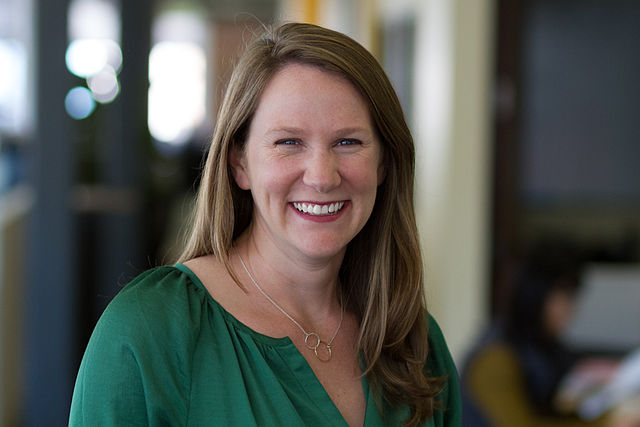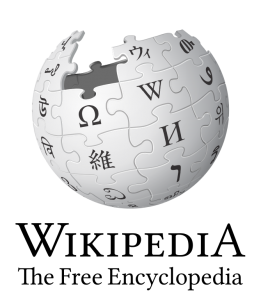Share This
Related Posts
Tags
Wikimedia Foundation
By Erica Rascón on Sep 29, 2016 in People
The Wikimedia Foundation is a nonprofit that’s dedicated to empowering and engaging people around the world to share in free knowledge. The organization supports and hosts Wikipedia and its sister Wikimedia sites, with the vision of allowing everyone, everywhere to freely share in the sum of all knowledge. Three projects have helped expand the scale of available Wikimedia content worldwide.
Raising support for these projects is Caitlin Virtue, who seamlessly stepped into her role as Director of Development at the Wikimedia Foundation nearly three years ago. In addition to her last name, the career path is basically in her veins.
“I grew up in the not-for-profit world,” begins Virtue. “My dad worked at the YMCA and my mom at the Red Cross. Working with a nonprofit was a really natural step for me.”
The singular vision of the Foundation resonated with Virtue: “Our mission, the vision, is that every human being should be able to share in the sum of all human knowledge. We want everyone everywhere, regardless of what language you speak, to have access to the sum of all human knowledge. That’s the direction that we’re going and every day we get closer to achieving it.”
After a brief pause, she laughs, “We will never get there, of course. Knowledge is being created all of the time. But that’s the value. We want information to be accessible to everyone all around the planet.”
To compile the sum of all human knowledge, the Wikimedia Foundation supports 11 projects including:
- Wikipedia: the free online encyclopedia
- Wiktionary: a free dictionary
- Wikiquote: a free collection of quotes
- Wikibooks: a free collection of books
- Wikisource: a free collection of primary source materials
- Wikimedia Commons: a free media repository
- Wikispecies: a science-based wiki on documenting all the species of the world
- Wikinews: a collaborative journalism site
- Wikiversity: a free educational resource repository
- Wikidata: a shared metadata site used by all Wikimedia projects
- Wikivoyage: a free travel information site
The largest project is Wikipedia, the free online encyclopedia. Users can interact with the site in nearly 300 languages and it has more than 39 million articles. Each month, about 80,000 volunteer editors contribute content.
To make all of that information accessible, the Wikimedia Foundation has teamed up with mobile operators worldwide to bring free Wikipedia content to urban and rural locales alike.
“Wikipedia Zero provides access to Wikipedia free of data charges,” explains Virtue. “In places where high data costs present a significant barrier to accessing Wikipedia, we work directly with mobile carriers to sign contracts that waive access fees to Wikipedia, so that data charges are not an issue. Then [users] will have free and unlimited access to all of Wikipedia.”
Wikipedia Zero is currently active in 57 countries with 75 mobile carriers, providing an estimated 600 million people with free access to Wikipedia.
Access to content is only as good as the readers’ ability to understand it. In order to present a vast amount of content in a diverse range of languages, the Wikimedia Foundation recently enhanced its content translation tool.
“Our tool is also getting more attention. A lot of people don’t realize that the nearly 300 language Wikipedias are not all perfect mirrors of each other. All of the articles are handwritten and hand created. Some Wikipedias, like English, have over 5 million articles. Others have only about 1 million or fewer. The new translation tool helps editors translate articles from one language to another. It was released in beta last year and is a full-fledged product now. It has been used to help create more than 100,000 new articles so far,” Virtue says.
As a final step—for now—the Wikimedia Foundation has taken measures to ensure timeless, free, and equal access. The organization’s endowment protects Wikimedia content from paywalls now and in the future.
“We recently launched an endowment, which is a new endeavor for us,” says Virtue. “We want to create a $100 million fund to support Wikipedia in perpetuity to make sure that this information remains available to everyone, forever.”
She continues, “We’re grateful for Yardi’s support. Yardi has been a donor since 2009 and it is one of the most prominent donors in terms of the length of its support and its magnitude. Yardi has made general fund donations which allow us to allocate the money to where it is needed most. We know how important education is to Yardi, and it’s a value that is equally shared by our organization as well.”
To show your support for the nonprofit, visit Wikimedia Foundation, Ways to Give.
